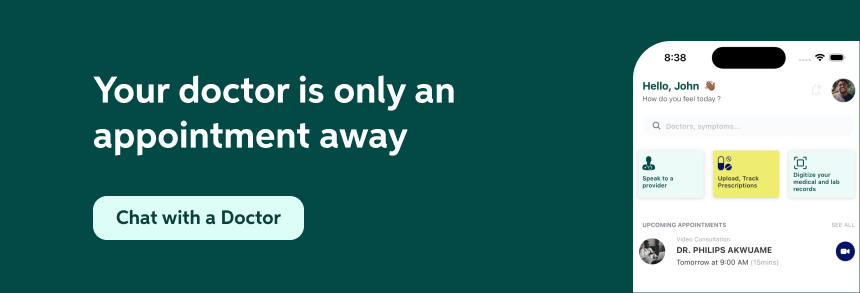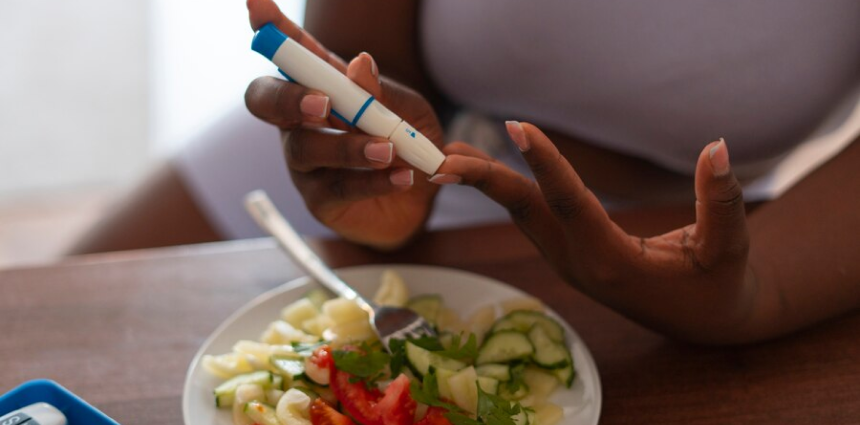There’s no permanent cure for diabetes, but in many cases, it can be reversed. If you are wondering about can diabetes be cured permanently, this blog discusses many techniques including, managing blood sugar levels so well that medications are no longer needed, maintained through a healthy diet, exercise, and weight control.
C. Ronald Kahn, M.D., President and Director of Joslin Diabetes Center, explains, “It is very possible for many people to really make a big difference in their diabetes by lifestyle, weight, and exercise changes. For those on medications, though, you will likely need them for most of your life.”
Now, let’s look at the different types of diabetes and the available treatments for managing and potentially reversing each.
Read comprehensive guide on Diabetes: Symptoms, Causes and Treatments
What are the Different Diabetes Types and Cures?
Here are the different types of diabetes, each varying in its causes, risks, and management strategies:
| Type | Description | Key Facts |
| Type 1 Diabetes | An autoimmune disorder where the body stops producing insulin, typically appearing in childhood or young adulthood. | Requires lifelong insulin therapy and frequent blood sugar monitoring. |
| Type 2 Diabetes | A condition where the body becomes insulin resistant or doesn’t produce enough, often linked to obesity and lifestyle factors. | Most common type, affecting people of all ages. Type 2 diabetes symptoms can be managed with diet, exercise, medication, and sometimes insulin. |
| Gestational Diabetes | Temporary diabetes occurs during pregnancy when the body’s insulin response decreases. | Affects 2–10% of pregnancies and increases the risk of type 2 diabetes later for both mother and baby. |
| Monogenic Diabetes | A rare form caused by mutations in a single gene, including neonatal diabetes and maturity-onset diabetes of the young (MODY). | Requires specialised diagnosis and targeted treatments. |
| Type 3c Diabetes | Develops from pancreatic damage due to surgery, injury, or pancreatitis, impairing insulin production. | Often misdiagnosed as type 2 diabetes but requires specific management. |
| Cystic Fibrosis-Related Diabetes | A complication of cystic fibrosis where thick mucus affects insulin-producing cells in the pancreas. | Requires a combination of diabetes and cystic fibrosis care. |
| Prediabetes | Blood sugar levels are elevated but not high enough for a diabetes diagnosis. | Increases the risk of type 2 diabetes. Often reversible with healthy lifestyle changes. |
Though a permanent cure for diabetes is still under research, effective management strategies and lifestyle changes can greatly improve quality of life and help prevent complications.
Type 1 Diabetes Cure and Treatment
- No cure currently available.
- Requires lifelong insulin therapy via injections or insulin pump.
- Frequent blood sugar monitoring to avoid complications.
- Healthy lifestyle choices help manage symptoms and prevent complications.
Type 2 Diabetes Cure and Treatment
- Not fully curable, but symptoms can be reversed or managed.
- Weight loss, healthy diet, and regular exercise play a critical role.
- Medications (e.g., Metformin) help regulate blood sugar levels.
- In some cases, insulin therapy may be necessary.
- Early intervention can reverse prediabetes and delay type 2 diabetes.
Gestational Diabetes Cure and Treatment
- Usually resolves after pregnancy.
- Managed through diet changes, exercise, and blood sugar management during pregnancy.
- May require insulin or medication in some cases.
- Reducing weight before pregnancy lowers future risks.
Monogenic Diabetes Cure and Treatment
- Treatment depends on genetic diagnosis.
- Some forms may respond to oral medication instead of insulin.
- Requires specialised care based on the gene mutation involved.
Type 3c Diabetes Cure and Treatment
- No specific cure; treatment targets blood sugar control.
- Often requires insulin therapy or other medications.
- Management focuses on treating underlying pancreatic issues.
Cystic Fibrosis-Related Diabetes Cure and Treatment
- No cure; requires insulin therapy to manage blood sugar.
- Regular monitoring and care for cystic fibrosis complications.
- Coordination between diabetes and cystic fibrosis care teams.
Prediabetes Cure and Treatment
- Reversible with lifestyle changes like weight loss for diabetes control and physical activity.
- Reversing diabetes through diet with fewer sugars and refined carbs.
- Early intervention prevents progression to type 2 diabetes.
Take a free prediabetes assessment to find out your risk of developing diabetes
Which Medicines Cure Diabetes?
Effective diabetes treatment often involves Diabetes medication management that help control blood sugar levels and reduce the risk of complications, as listed below:
Metformin
- Use: Commonly prescribed for type 2 diabetes.
- How it works: Lowers blood sugar and improves insulin effectiveness.
- FDA Alert: In May 2020, certain extended-release metformin tablets were recalled due to the presence of a probable carcinogen.
- Action: If taking extended-release metformin, consult your doctor for guidance.
SGLT2 Inhibitors
- Use: Recommended for people with type 2 diabetes, especially those at high risk for heart disease or heart failure.
- How it works: Lowers blood sugar by helping the kidneys remove glucose through urine.
- Side Effects: Increased risk of urinary or genital infections, and in rare cases, ketoacidosis.
GLP-1 Receptor Agonists
- Use: Prescribed for type 2 diabetes, alone or with metformin.
- How it works: Stimulates insulin production and reduces glucose entering the bloodstream.
- Administration: Injectable medication.
- Side Effects: May cause nausea, reduced appetite, and other gastrointestinal symptoms.
Can You Cure Diabetes Without Medication?
While diabetes may not have a permanent cure, it is possible to achieve remission through natural remedies for diabetes including; lifestyle changes, where blood sugar levels return to a healthy range, reducing or eliminating the need for medication.
However, remission does not mean the condition is gone for good, as it can return without continued care.
Key strategies for maintaining remission include:
- Losing weight and keeping it within a healthy range, that can be calculated through a BMI Calculator.
- Following a balanced diet with limited sugars and refined carbs.
- Staying physically active with regular exercise for blood sugar control.
By maintaining these habits, you can lower the chances of relapse and support long-term health.
What is Diabetes Remission?
Diabetes remission means your blood sugar levels stay below the diabetic patient range without the need for medication. Experts define remission more precisely using HbA1c levels, which reflect your long-term blood sugar control.
How Does Mental Health Influence Diabetes Management and Treatment Outcomes?
Living with diabetes requires more than just managing blood sugar levels—mental health plays a crucial role in ensuring successful diabetes care. Anxiety, depression, and emotional stress can affect a person’s ability to maintain routines and adhere to treatment plans.
Here are some key ways mental health impacts diabetes management:
- Impact of Depression and Anxiety:
- Depression affects motivation and consistency, making it harder to follow diet plans, monitor glucose, or take medications.
- Anxiety can lead to avoidance behaviours, such as skipping doctor appointments or insulin doses.
- Behavioural Challenges:
- Mental health struggles can reduce a person’s self-care ability, causing them to neglect blood sugar monitoring or physical activity.
- Poor emotional health may lead to unhealthy coping mechanisms, such as emotional eating or smoking.
- Self-efficacy and Empowerment:
- People with better mental health often feel more empowered to manage their diabetes effectively.
- A strong mental state helps in building resilience when treatment becomes challenging, such as dealing with insulin adjustments or complications.
- Effect on Blood Sugar Control:
- Stress hormones, like cortisol, can increase blood sugar levels directly, complicating diabetes management.
- Emotional distress can also cause fluctuations in glucose levels, leading to episodes of hypo- or hyperglycemia.
- Social and Emotional Support:
- Mental health issues may limit a person’s ability to seek or engage in social support networks, which are essential for long-term care.
- Programs focusing on peer support and mental health counselling improve both emotional well-being and blood sugar control.
What are Some Ineffective Solutions to Watch Out For?
There’s no quick fix for reversing diabetes. Be cautious of products that promise a cure or claim to replace your prescribed medications. The FDA warns that many of these products are not only ineffective but could also pose serious risks to your health.
Keep an eye out for the following:
- Herbal supplements
- Non-prescription drugs
- Alternative treatments
- Homeopathic remedies
- Unregulated prescription medications
Learn more about How to Prevent Diabetes
FAQs
Can diabetes get cured permanently?
There is no permanent cure for diabetes. However, type 2 diabetes can sometimes be reversed with weight loss and lifestyle changes.
Can diabetes be cured by walking?
Walking helps control blood sugar and improves insulin sensitivity, but it alone cannot cure diabetes. Lifestyle changes, diet and weight management, are necessary for optimal control.
What foods can reverse diabetes?
Non-starchy vegetables, whole grains, lean proteins, and foods rich in omega-3s help improve insulin sensitivity and manage blood sugar. Avoid refined grains, sugary foods, and highly processed products for better control.
How long can someone live with diabetes?
With proper management, people with diabetes can have a normal or near-normal lifespan. Good control of blood sugar levels, healthy habits, and regular medical care are essential for longevity.
How do people get diabetes?
Diabetes develops due to a combination of genetic factors and lifestyle choices. Type 1 is caused by autoimmune reactions, while type 2 is influenced by obesity, poor diet, and inactivity.
How long can someone live with diabetes?
Diabetes can reduce life expectancy by several years, with type 1 diabetes reducing lifespan more significantly. However, with proper care and management, many live a near-normal lifespan.
Wrap Up
While there may not be a permanent cure for diabetes, effective management through lifestyle changes for diabetes and treatment can lead to remission and improved well-being can answer your question of can diabetes be cured permanently.
For personalised guidance on your diabetes journey, consider scheduling a consultation with a doctor through the DrDoGood platform for virtual care for diabetes patients.


